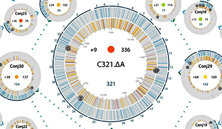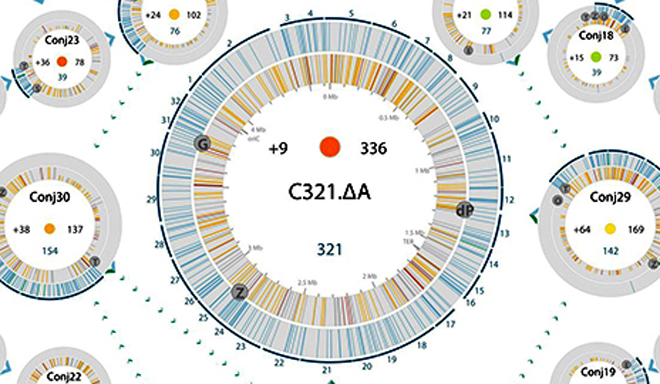Scientists Recode Entire Genome to Re-design Natural Biological Systems

Yale and Harvard researchers have imparted bacteria with an ability to resist viruses by rewriting their entire genetic code. By doing so, they have opened doors to the possibility of re-engineering genetic codes in order to harness cell’s biological function to create potent form of proteins that can be used for anything ranging from combating diseases to developing new class of materials.
Researchers explored the possibility of substituting different codons throughout the genome in order to create new amino acids which are generally not available in nature. In this study, they eliminated a codon responsible for terminating the production of a certain protein in E coli, thus preventing it from producing a natural protein used by viruses to infect cells and in turn imparting resistance to the bacteria against these viruses. By meddling with the codons, they also managed to overcome the mechanism in place that prevents production of non-standard amino acids (NSAA) and encouraged the cell to produce the 21st amino acid efficiently.
The unnatural amino acids produced can be used to create proteins with new functions which can be used for therapeutic or industrial purposes. Scientists had been working on different ways to produce proteins containing NSAAs, but they had had not come across an efficient process like this until now. The success of this study opens new avenues for research and applications involving Genetically Recoded Organisms (GRO) in biotechnology.
Source: Yale University



